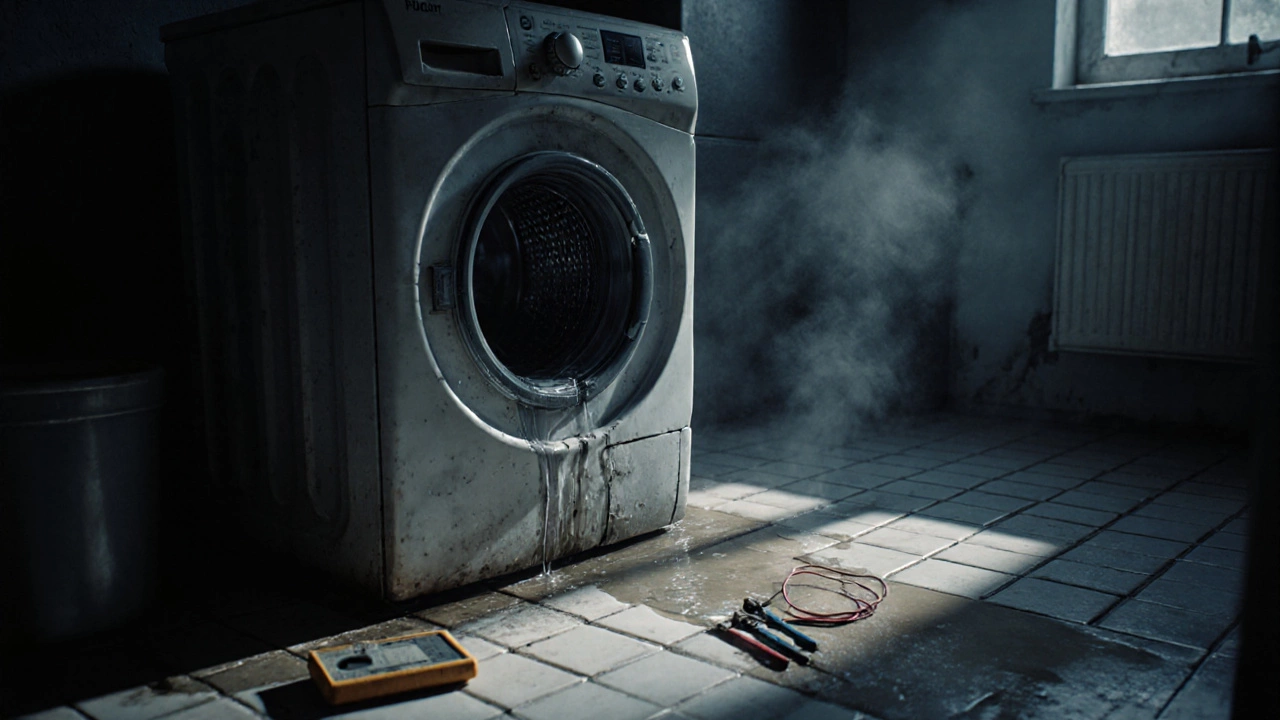When your washing machine, a household appliance that cleans clothes using water and detergent. Also known as a laundry washer, it’s one of the most used devices in your home. stops working, you’re faced with a simple but costly choice: fix it or buy a new one. Most people panic and jump straight to shopping for a replacement—but that’s often not the smartest move. Many washing machines can be repaired for less than half the price of a new unit, especially if the issue is something like a broken pump, faulty door lock, or worn belt. The real question isn’t just about money—it’s about value, lifespan, and whether your machine is even worth saving.
Here’s what most guides leave out: the repair cost, the total expense of fixing an appliance, including parts and labor. versus the age of your washer, how many years the appliance has been in use, which directly affects its reliability.. If your machine is under five years old and the repair is under $300, fixing it almost always makes sense. But if it’s eight years or older and the fix costs more than half the price of a new model, you’re throwing money away. A 2023 Consumer Reports study found that 62% of washers older than 10 years develop major issues within a year of repair—meaning you’re likely to be back in the same spot soon. And let’s not forget energy. Newer models use up to 40% less water and electricity. If your washer is dragging your utility bills up, replacing it might pay for itself in a few years.
Some problems are easy to spot. If your washer won’t spin, it’s probably a belt or motor issue. If it’s leaking from the bottom, the tub seal or drain pump might be to blame. These are common, cheap fixes. But if the control board is fried, the drum is cracked, or the motor is making grinding noises, you’re looking at expensive repairs that often signal the end of the line. You don’t need to be a technician to know when it’s time to walk away. Ask yourself: has it been acting up for months? Do you hear weird noises every time you start a load? Are you constantly resetting it or bypassing error codes? If yes, you’re not fixing the machine—you’re just delaying the inevitable.
And here’s the thing most repair shops won’t tell you: sometimes, waiting too long to replace your washer causes more damage. A leaking tub can rot your floor. A faulty water valve can flood your laundry room. A broken door lock can lead to safety hazards. So while it’s smart to try a repair first, don’t ignore the warning signs. The goal isn’t just to get your clothes clean—it’s to avoid bigger, costlier problems down the road.
Below, you’ll find real-world guides from people who’ve been there. We’ve pulled together step-by-step checks for common washer problems, cost breakdowns for major repairs, and honest advice on when to walk away. No fluff. No upsells. Just clear, practical info to help you make the right call—without getting ripped off.
Posted by
Orin Trask
0 Comments

Is it worth repairing your washing machine? Learn the real costs, common fixes, and when replacing it saves you money - with practical advice for New Zealand households.
read more